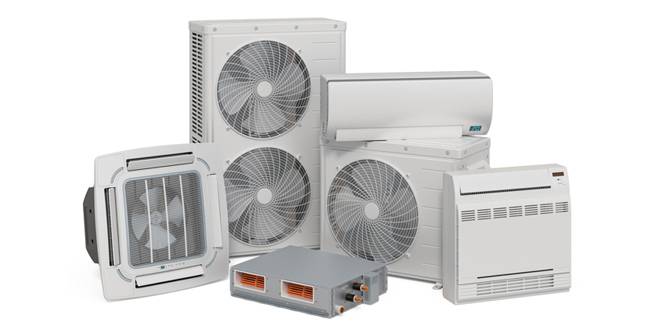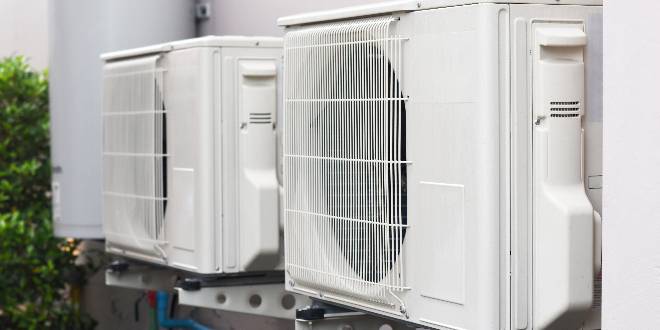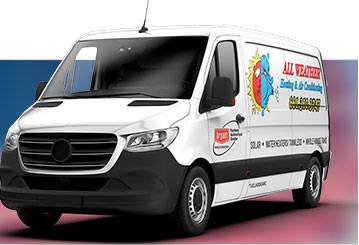
When it comes to keeping your home comfortable during the hot summer months, choosing the right air conditioning system is crucial. With so many options available, it can be challenging to determine which system best suits your needs. In this guide, we’ll explore the different types of AC systems, their benefits, and the ideal scenarios for their use. Whether you’re considering an upgrade or looking for a new installation, understanding these systems will help you make an informed decision.
Central Air Conditioning Systems
Central air conditioning systems are a popular choice for cooling entire homes. These systems consist of a central unit that cools air and distributes it through a network of ducts to various rooms.
How It Works
Central AC systems use a split system with an outdoor unit that houses the compressor and condenser, and an indoor unit that contains the evaporator coil and air handler. The refrigerant circulates between these units, absorbing heat from indoor air and releasing it outdoors. The cooled air is then pushed through ducts by the air handler, ensuring a consistent temperature throughout your home.
Benefits
- Even Cooling: Central AC systems provide uniform cooling across all rooms, maintaining a consistent temperature.
- Quiet Operation: Since the noisy components are located outside, indoor noise levels are minimal.
- Increased Home Value: A well-installed central air system can enhance your home’s market value.
Ideal Usage Scenarios
- Large Homes: Central AC is perfect for larger homes with multiple rooms and floors.
- Existing Ductwork: If your home already has ductwork installed, central AC can be an efficient choice.
For expert advice and professional installation of central air conditioning systems, visit our AC Installation page.
Ductless Mini-Split Systems
Ductless mini-split systems offer a flexible and efficient solution for cooling specific areas of your home. These systems are ideal for homes without existing ductwork or for adding cooling to individual rooms.
How It Works
A ductless mini-split system consists of an outdoor unit that houses the compressor and condenser, and one or more indoor units that contain the evaporator coil and air handler. These indoor units are mounted on walls or ceilings and are connected to the outdoor unit via refrigerant lines. Each indoor unit can be controlled independently, allowing for customized temperature settings in different rooms.
Benefits
- Energy Efficiency: By cooling only the rooms that are in use, ductless systems can significantly reduce energy consumption.
- Zoned Cooling: Each indoor unit operates independently, providing tailored comfort for different areas of your home.
- Easy Installation: Ductless systems require minimal installation work, making them a great option for homes without ductwork.
Ideal Usage Scenarios
- Older Homes: Perfect for homes without existing ductwork or those with inefficient duct systems.
- Room Additions: Ideal for cooling new additions, garages, or rooms that are not connected to the central AC system.
For more information on ductless mini-split systems and professional installation, check out our AC Installation page.

Window Air Conditioning Units
Window air conditioning units are a cost-effective and straightforward solution for cooling individual rooms. These units are designed to fit into a standard window frame, providing an easy installation process and immediate relief from the heat.
How It Works
A window AC unit is a self-contained system that combines the compressor, condenser, evaporator, and air handler in one compact box. The unit is installed in a window or a wall opening, with the back portion extending outside to vent heat. The system draws in warm air from the room, cools it using a refrigerant, and then blows the cooled air back into the room.
Benefits
- Affordability: Window units are generally less expensive than other types of AC systems, both in terms of initial cost and installation.
- Ease of Installation: These units are easy to install and can be set up quickly without the need for professional help.
- Portability: While not as portable as standalone units, window ACs can be removed and relocated with relative ease.
Ideal Usage Scenarios
- Small Spaces: Ideal for cooling single rooms or small apartments.
- Temporary Cooling: Great for renters or those who need a temporary cooling solution during the hottest months.
For maintenance and repair services to keep your window unit running efficiently, visit our AC Maintenance page and our AC Repair page.
Portable Air Conditioners
Portable air conditioners offer a versatile and convenient cooling solution for various spaces. These units are designed to be easily moved from room to room, providing flexibility and targeted cooling where it’s needed most.
How It Works
A portable air conditioner is a self-contained unit that houses all components, including the compressor, condenser, evaporator, and air handler, within a single portable device. It draws in warm air, cools it through a refrigeration cycle, and then blows the cooled air back into the room. A flexible exhaust hose is used to vent the hot air out of a nearby window or opening.
Benefits
- Mobility: Easily moved from one room to another, making them ideal for spot cooling.
- No Permanent Installation: Requires only a window or vent for the exhaust hose, avoiding permanent installation.
- Versatility: Can be used in rooms without windows, provided there is a way to vent the exhaust hose.
Ideal Usage Scenarios
- Temporary Cooling: Perfect for renters, those in temporary living situations, or for occasional use.
- Supplemental Cooling: Useful for adding extra cooling to rooms that are not adequately served by central or window AC units.
- Small Spaces: Ideal for small apartments, dorm rooms, or home offices.
For advice on choosing the right portable air conditioner and ensuring it runs efficiently, visit our AC Maintenance page.

Hybrid Air Conditioners
Hybrid air conditioners combine the benefits of both electric and gas-powered cooling, providing an energy-efficient and versatile option for home comfort. These systems are designed to switch between electricity and fossil fuels, optimizing energy use based on the current demand and outside temperature.
How It Works
A hybrid air conditioner operates similarly to a traditional heat pump but with an added ability to switch between electricity and gas. During milder temperatures, the system uses electricity to cool or heat the home. When temperatures drop significantly, the system automatically switches to using gas, which is more efficient for heating in extreme cold. This dual approach ensures optimal energy efficiency throughout the year.
Benefits
- Energy Efficiency: By using the most efficient energy source based on the temperature, hybrid systems can significantly reduce energy costs.
- Versatility: Provides both heating and cooling, making it a year-round solution.
- Environmental Impact: Reduces reliance on fossil fuels by using electricity during milder conditions.
Ideal Usage Scenarios
- Variable Climates: Ideal for regions with significant temperature fluctuations, benefiting from both electric and gas efficiency.
- Energy Savings: Suitable for homeowners looking to reduce energy bills and increase efficiency.
- Eco-Conscious Homes: Great for those aiming to minimize their environmental footprint.
For more information on hybrid air conditioning systems and expert installation, visit our AC Installation page.
Geothermal Air Conditioning Systems
Geothermal air conditioning systems offer a sustainable and highly efficient way to cool your home by utilizing the earth’s consistent underground temperatures. These systems are ideal for homeowners seeking an environmentally friendly and cost-effective cooling solution.
How It Works
A geothermal AC system uses a series of underground pipes, known as a ground loop, to exchange heat with the earth. The system circulates a water-based solution through these pipes, absorbing heat from your home and transferring it to the cooler underground environment. In the summer, the system removes heat from your home and deposits it into the ground, while in the winter, it extracts heat from the ground to warm your home.
Benefits
- High Efficiency: Geothermal systems can reduce energy consumption by up to 50% compared to traditional systems.
- Environmental Impact: By leveraging renewable energy from the earth, geothermal systems significantly lower greenhouse gas emissions.
- Longevity: These systems have a long lifespan, often lasting over 20 years for indoor components and up to 50 years for the ground loop.
Ideal Usage Scenarios
- Eco-Friendly Homes: Perfect for homeowners committed to sustainability and reducing their carbon footprint.
- Long-Term Investment: Ideal for those looking to invest in a long-lasting, efficient system with lower operating costs.
- New Constructions: Geothermal systems are easier to install during the construction phase of a new home.
For more details on geothermal air conditioning systems and professional installation, check out our AC Installation page.
Conclusion
Choosing the right air conditioning system is essential for maintaining comfort and energy efficiency in your home. From central air conditioning systems to geothermal solutions, each type of AC system offers unique benefits and is suited for different needs and scenarios.
Here’s a comparative table to help you understand the key features of each AC system:
| AC System | Benefits | Ideal Usage Scenarios |
| Central Air Conditioning | Even cooling, quiet operation, increased home value | Large homes with existing ductwork |
| Ductless Mini-Split Systems | Energy efficiency, zoned cooling, easy installation | Homes without ductwork, room additions |
| Window Air Conditioning Units | Affordability, ease of installation, portability | Small spaces, temporary cooling |
| Portable Air Conditioners | Mobility, no permanent installation, versatility | Temporary cooling, supplemental cooling, small spaces |
| Hybrid Air Conditioners | Energy efficiency, versatility, reduced environmental impact | Variable climates, energy savings, eco-conscious homes |
| Geothermal Air Conditioners | High efficiency, environmental impact, longevity | Eco-friendly homes, long-term investment, new constructions |
When deciding on an AC system, consider factors such as the size of your home, existing infrastructure, energy efficiency goals, and budget. Each system has its own set of advantages that can cater to your specific cooling needs.
If you need expert advice on selecting the right AC system or require professional installation and maintenance services, don’t hesitate to contact us at All Weather Heating & Air Conditioning. Our team is here to help you stay cool and comfortable all year round. For more information on our services, visit our pages on AC Installation, AC Repair, and AC Maintenance.
Thank you for reading our guide on the different types of AC systems. Stay cool and enjoy the comfort of a perfectly conditioned home! ????

